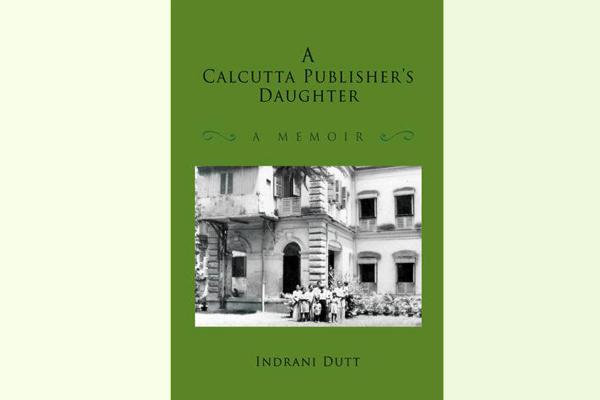 image
image
A Calcutta Publisher's Daughter re-lives the days of Signet Press
# ACalcuttaPublishersDaughter
# IndraniDutt
# SignetPress
# JawaharlalNehur
# SatyajitRay
# DiscoveryofIndia
To me, Signet Press was another milestone in the history of Indian publishing, Bengali to be more precise, a house that revolutionised publishing in pre-Independent India.
Like most people, I just knew the names of the legendary books that Signet had come out with—ranging from Discovery of India by Jawaharlal Nehru to Chander Pahar by Bibhutobhushan Bandopadhyay.
So when I got the opportunity to read the stories behind this illustrious organisation, I was excited.
This book was an opportunity to know about Signet, to know the people behind Signet, to know how the legendary publications came into existence—in short this was an enthralling trip through a fascinating lane of publishing history.
'A Calcutta Publisher’s Daughter' has been authored by Indrani Dutt. She is the daughter of Dilip Kumar Gupta, better known as DK, the co-founder of Signet Press.
The author has recreated the world of Signet Press for the readers through her beautiful words.
The house where the Press had its base has been described with such loving details that it comes alive for the readers very vividly.
Through Dutt’s words it is so easy to imagine Satyajit Ray sitting at a corner table doing cover illustrations for some legendary books, to visualise Jawaharlal Nehru traipsing up the stairs to check the galley proofs of his book, Discovery of India.
Dutt narrates how attached she and her siblings were to the house and the profound effect the house, the Press office, and the whole atmosphere had on her as a child.
The house at 10/2 Elgin Road not only served as the breeding ground of great literature but it also served as the house that nourished the imagination, the soul of the author and her family.
Another feat that this narrative achieves is that it brings alive the Calcutta of yesteryears, from the Alipore Zoo to Flurys to Woodburn Street to Elgin Road.
The cultural atmosphere in the city has been described with haunting reminiscence.
The author tells us how rich, how glamorous the old movie theatres used to be—the ones that are extinct now or are fading away.
The daily, humdrum lives of a domestic household, in those days, have been described with precise details.
The movie culture prevalent in those times and the cultural renaissance that Calcutta went through—all have been captured through the gripping narrative.
The change that Calcutta went through to become what it is today has been represented through Dutt’s perspective.
The most fascinating part of this book has to be the chapters on the two founders of Signet, the author’s maternal grandmother and her father.
The two illustrious characters have been portrayed here as the heroes that the author has idolized all her life and why not!
They were true heroes of their age who pioneered a great literary change in the Indian society through their innovative and modern ideas about the literary works they published.
Now that the publishing diaspora in Bengal is going through a rough patch, it is time that the concerned authorities take a leaf out of the Signet book and find a brighter way forward.
And perhaps, this wonderful memoir by Indrani Dutt would help them do just that.
(Reviewed by Priya Das)
Top Headlines
-
Literary
Culturist Sundeep Bhutoria unveils anthology When Gods Don't Matter at Jaipur LitFest 2026
January 17, 2026
-
Literary
Sona College of Technology hosts Think Salem 2025: To spur startup opportunity from Tier-2 Cities
December 23, 2025
-
Literary
A Defiant Voice Remembered: Jyotsna Mohan at The Write Circle, Dubai
September 27, 2025
-
Literary
Feminist pioneer Abala Bose was both a subscriber and critique of colonial ideas: Author Saptarshi Mallick
August 26, 2025
-
Literary
The Sona Story: The Textile to Tech Journey of Chettiar Industrialist C. Valliappa
April 22, 2025
-
Literary
The Sona Story celebrates life, legacy of C. Valliappa
April 05, 2025
-
Literary
Acclaimed Author Soma Bose continues to inspire with her powerful storytelling
March 07, 2025
-
Literary
Terrorists behind Nagrota attack had a jihadi sentiment: 'Nagrota Under Siege' author Bhaavna Arora
February 26, 2025
-
Literary
I am a lifelong Felu-da fan, says Arindam Basu unveiling truth-seeker Prithviraj's intriguing world in 'The Calcutta Covenant'
February 18, 2025
-
Literary
Women decide Indian politics now: Veteran journalist Rajdeep Sardesai at Kitaab talk in Kolkata
January 12, 2025
